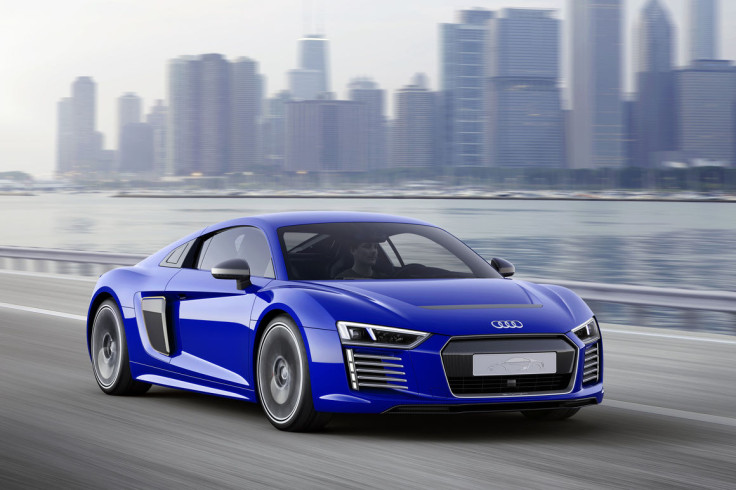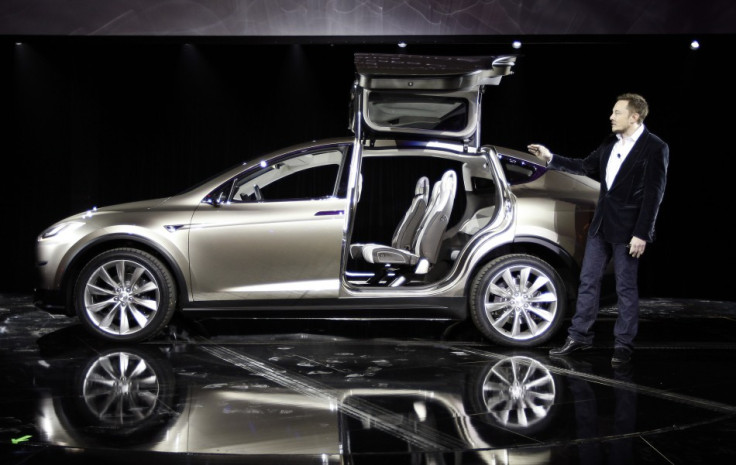Audi killing the electric R8 e-tron is no surprise - but its time will come
Audi jumped the gun on the electric sports car, but once the EV market matures it will get another chance.

It should really come as no surprise that Audi has killed off the R8 e-tron. The all-electric sports car seemed like a great idea when it launched at the Geneva motor show at the start of 2015, but the electric vehicle game is moving so quickly Audi and parent company Volkswagen knows the money is better spent elsewhere.
In fact, the R8 e-tron's roots can be traced back to a prototype from 2010, which promised four electric motors, four-wheel-drive, different styling, chassis and interior to the petrol-powered R8. Audi claimed it would sell 1,000 units per year at prices above the £100,000 R8, but ultimately "fewer than 100" were sold.
But much has changed since 2010, and despite the launch of a production-ready version in 2015 the e-tron was only ever destined for obscurity. The £850,000 price tag was, naturally, a problem, but in a world where hypercars are now well over £1m and second-hand Porsche 911s pass the £400,000 mark, you would still expect Audi to sell some.
More pressing is the rate of development the electric vehicle (EV) market has sustained since 2010. After a faltering start Tesla has come out to dominate the industry, giving itself a substantial head start over the more established competition. By quickly pivoting from the limited-run Roadster, Tesla used the Model S saloon and Model X sports utility vehicle to bring electric motoring to the (admittedly well-heeled) masses in the form of two hugely practical family vehicles.
These are not weekend toys like the R8 e-tron, these are people-movers designed to be used every day. And, crucially, they were designed from day one to be electric and electric only. The heavy batteries are in the floor, freeing up space in the cabin and front/rear boot while lowering the car's centre of gravity.
If Audi had stuck with the 2010 prototype and built an electric sports car then maybe the e-tron would have legs, but by basing it on the R8 it was already off to a faltering start. Other converted electric cars like the Volkswagen Golf and Ford Focus feel like they are from a previous era compared to the purpose-built BMW i3, Chevrolet Bolt and Tesla Model 3. Building an electric car is far more complex than switching the petrol engine and fuel tank for a motor and battery.

And even if Audi had designed the R8 e-tron as electric from day one, it would still have worked itself into the tricky position of equipping a fun, fast and lightweight sports car with a big, heavy battery. Electric cars can be small and with average performance (and a sub-200 mile range) if they are designed as city cars; or they can be made into much larger family cars with a long range, where the bulk of a big battery is less dominant.
The electric, mass-market sports car doesn't make economic sense - yet
They cannot (yet) be small, powerful, light and sporty – and still drive a respectable distance between chargers. The idea of an electric sports car is, for now, flawed. Only million-dollar hypercars like the Rimac EV get close, but that isn't yet (and might never be) in mass production, and its handling characteristics are yet to be fully revealed.
Another reason for ditching the electric sports car dream for now is how EV has quickly shifted from concept car cannon fodder to the unquestionable future of motoring. Electric prototypes like Faraday Future's are fun, but already manufacturers know they need to make big yet sensible moves into the EV market. Affordable city cars and big people carriers are currently the way to go for brands the size of Audi. Just look at VW's Budd-e; a concept for sure, but one that, right now, makes more economic and practical sense than an electric sports car. Even Porsche's first EV project, the Mission E, is a four-door saloon car and not an electric 911.
This might sound all doom-and-gloom, forecasting the death of the sports car and driving for pleasure, but this is a transitional process. Electric car technology will prove itself in everyday cars today then work its way out to the extremities tomorrow. Audi - and Mercedes with the £300,000 electric SLS - jumped the gun, but EV is only just getting started and there will be plenty more races to compete in.
© Copyright IBTimes 2025. All rights reserved.






















